When Are Nevada Drivers Required to Yield the Right-of-Way?
Safe driving is everyone’s responsibility. This includes following the rules of the road and knowing when to yield the right-of-way. An accident can occur when one driver fails to yield the right-of-way. Do you know when Nevada law requires drivers to yield the right-of-way? If you are a Nevada driver, these laws could potentially save a life. Below we will discuss when the law requires Nevada drivers to yield the right-of-way.
If you have been injured by a Nevada driver, seek medical help immediately. Once you have gotten your injuries tended to, you should seek legal help from an experienced Las Vegas personal injury lawyer. The law firm Anthem Injury Lawyers has a dedicated team of personal injury lawyers ready to help you with your case. Our team can get you the significant compensation you deserve for your injuries. Don’t wait to get in touch with our Las Vegas car accident lawyers – time is of the essence as we’ll use it to build your case, protect your rights, and get you the compensation that is rightly due you. Contact us today at (702) 857-6000 to make an appointment for a free consultation.

Drivers Are Required to Yield the Right-of-Way When Approaching or Entering an Intersection
Nevada Revised Statute (NRS) 484B.250 states the following:
1. The driver of a vehicle approaching an intersection shall yield the right-of-way to a vehicle that has entered the intersection from a different highway.
2. When two vehicles enter an intersection from different highways at approximately the same time, the driver of the vehicle on the left shall yield the right-of-way to the vehicle on the right.
3. When two vehicles enter an intersection at approximately the same time, one vehicle traveling on a highway that ends at the intersection and the other vehicle traveling on a through highway, the driver of the vehicle on the highway that ends at the intersection shall yield the right-of-way to the other vehicle.
4. When a vehicle enters an intersection controlled by a traffic-control signal that is installed and has its vehicular signals uncovered but is inoperative at the time the vehicle enters the intersection, the driver of the vehicle shall proceed as if a stop sign had been erected at each entrance to the intersection and shall stop at a clearly marked stop line or, if there is none, before entering the crosswalk on the near side of the intersection or, if there is none, at the point nearest the intersection where the driver has a view of approaching traffic on the through highway. After making such a stop, the driver shall proceed cautiously, yielding to vehicles that have previously completed a stop or are within the intersection.
5. Except as otherwise provided in subsection 4, this section does not apply at intersections controlled by official traffic-control devices or to vehicles approaching each other from opposite directions, when the driver of one of the vehicles is intending to or is making a left turn.
Drivers Are Required to Yield the Right-of-Way When Turning Left
NRS 484B.253 states the following:
- The driver of a vehicle within an intersection intending to turn to the left shall yield the right-of-way to any vehicle approaching from the opposite direction which is within the intersection or so close thereto as to constitute an immediate hazard, but such driver, having so yielded and having given a signal when and as required, may make such left turn and the drivers of all other vehicles approaching the intersection from the opposite direction shall yield the right-of-way to the vehicle making the left turn.
Drivers Are Required to Yield the Right-of-Way When Entering An Intersection Marked Stop or Yield
NRS 484B.257 states the following:
1. When proper signs have been erected, the driver of a vehicle shall stop or yield at a clearly marked stop line or, if there is none, before entering the crosswalk on the near side of the intersection or, if there is none, then at the point nearest the intersection where the driver has a view of approaching traffic on the through highway. After having stopped or, in the event of a yield sign, slowed or stopped, the driver shall yield the right-of-way to other vehicles that have entered the intersection from such through highway or which are approaching so closely on such through highway as to constitute an immediate hazard during the time such driver is moving across or within the intersection.
2. The driver of a vehicle shall stop in obedience to a stop sign or yield in compliance with a yield sign, in compliance with the manner prescribed in subsection 1, prior to entering an intersection if a stop sign or a yield sign is erected at one or more entrances thereto although not a part of a through highway and shall proceed cautiously, yielding to vehicles not so obligated to stop or yield and which are within the intersection or approaching so closely as to constitute an immediate hazard during the time such driver is moving across or within the intersection.

Drivers Are Required to Yield the Right-of-Way When Entering a Highway from a Private Way
NRS 484B.260 states the following:
- The driver of a vehicle about to enter or cross a highway from a private way shall yield the right-of-way to all vehicles approaching such highway.
If a Nevada driver fails to yield the right-of-way and injures you, contact an experienced personal injury lawyer. Las Vegas Anthem Injury Lawyers is a team of experienced, dedicated personal injury lawyers and case managers. Based in Henderson, Nevada, we work with clients all over the Las Vegas area. If you’ve become the victim in a car accident through the fault of another, get in touch with our lawyers who will aggressively pursue maximum compensation for your injuries. Contact us today at (702) 857-6000 to make an appointment for a free consultation.
Drivers Are Required to Yield the Right-of-Way When Entering or Exiting a Controlled-Access Highway
Under NRS 484B.263, the driver of a vehicle about to enter or exit a controlled-access highway shall yield the right-of-way to all vehicles approaching the highway. The driver may not proceed until they can do so with reasonable safety.
Drivers Are Required to Yield the Right-of-Way to Emergency Vehicles
NRS 484B.267(1) states the following:
- Upon the immediate approach of an authorized emergency vehicle or an official vehicle of a regulatory agency, making use of flashing lights meeting the requirements of subsection 3 of NRS 484A.480, the driver of every other vehicle shall yield the right-of-way and shall immediately drive to a position parallel to, and as close as possible to, the right-hand edge or curb of a highway clear of any intersection and shall stop and remain in such position until the authorized emergency vehicle or official vehicle has passed, except when otherwise directed by a law enforcement officer.
The full text of NRS 484B.267 has additional requirements for drivers approaching an authorized emergency vehicle or an official vehicle of a regulatory agency. Review the complete statute for the full text.
Driver’s Duty of Care With Bicycles, Electric Bicycles, Electric Scooters, and Pedestrians
Under Nevada law, drivers have a duty of care when encountering bicycles, electric bicycles, electric scooters, and pedestrians. The full text of NRS 484B.270 has additional requirements for drivers. Review the complete statute for the full text.
NRS 484B.270(3) states the following:
- The driver of a motor vehicle shall yield the right-of-way to any person riding a bicycle, an electric bicycle an electric scooter, or a pedestrian as provided in subsection 6 of NRS 484B.297 on the pathway or lane. The driver of a motor vehicle shall not enter, stop, stand, park, or drive within a pathway or lane provided for bicycles, electric bicycles, or electric scooters except:
Experienced Las Vegas Personal Injury Lawyers
Have you been injured in a Las Vegas failure-to-yield accident? You should speak with an experienced personal injury lawyer. Award-winning personal injury law firm Anthem Injury Lawyers is a team of experienced, dedicated personal injury lawyers based in Henderson, Nevada. With over 25 years of experience, Anthem Injury Lawyers specializes in personal injury claims, including complex car accidents.
Trying to fight against insurance companies yourself is not recommended. Get the experts on your side and have us work for you to gain maximum compensation for your injuries. Our experienced team is ready to help you through the legal process. Remember: insurance companies are not motivated to help you. We will protect your rights and get you the compensation you are rightly due. Don’t worry about affording a Las Vegas car accident lawyer – we work on a contingency fee basis, so you only pay if we win for you. Contact us today at (702) 857-6000 to make an appointment for a free consultation. If you’re severely injured or otherwise not able to visit our office, we will come to you.





